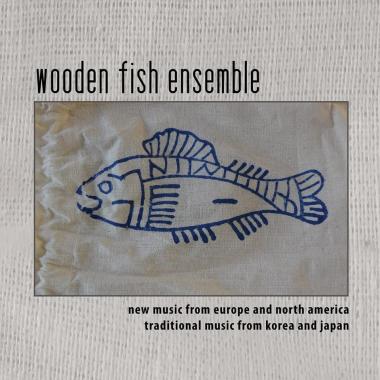
The San Francisco based Wooden Fish Ensemble present concerts featuring music and musicians from a variety of cultural and national backgrounds working together in a collaborative way. The Ensemble has performed concerts of traditional music from Asia alongside new music by a diverse group of composers that includes John Cage, Christian Wolff, Frederic Rzewski, Morton Feldman, Hyo-shin Na, and Walter Zimmermann, with numerous world premieres. In celebration of its 20th anniversary, the Ensemble will perform the music of Korean-American and San Francisco resident Hyo-shin Na, and the last composition of the American master Morton Feldman—his 75-minute long work Piano, Violin, Viola, Cello. The program includes the World Premiere of Na’s Quadrangle of Light.
In Korea Hyo-shin Na has twice been awarded the Korean National Composers Prize (for Western instrumental music & for Korean traditional instrumental music), and in the west she has been commissioned by the Fromm Foundation at Harvard University, the Koussevitzky Foundation, the Zellerbach Family Foundation, the Argosy Foundation, the W & F Hewlett Foundation, the Elaine and Richard Fohr Foundation, InterMusic SF, the Other Minds Festival, and the Los Angeles International New Music Festival among many others. Her music has been played worldwide by ensembles as varied as the Barton Workshop, the San Francisco Contemporary Music Players, the Kronos Quartet, the San Jose Chamber Orchestra, the National Gugak Center Orchestra of Korea, the Del Sol String Quartet, the Ives Quartet, the Earplay Ensemble, New Music Works, the Pacific Chamber Orchestra and the Korean Traditional Orchestra of the National Theatre among many others. Numerous groups and individual musicians, such as New Music Works in the US, the Barton Workshop in Europe, and the Jeong Ga Ak Hoe Ensemble in Asia have presented portrait concerts devoted solely to her music.
Hyo-shin Na has written for western instruments, and for traditional Korean and Japanese instruments and has written music that combines western and Asian instruments and ways of playing. Her music for traditional Korean instruments is recognized by both composers and performers in Korea (particularly by the younger generation) as being uniquely innovative. Her writing for combinations of western and eastern instruments is unusual in its refusal to compromise the integrity of differing sounds and ideas; she prefers to let them interact, coexist and conflict in the music.
She is the author of the bilingual book Conversations with Kayageum Master Byung-ki Hwang (Pulbit Press, 2001). Her music has been recorded on the Fontec (Japan), Top Arts (Korea), Seoul (Korea) and New World Records (US) labels and has been published in Korea and Australia. Since 2006 her music has been published exclusively by Lantro Music (Belgium).
Na has been awarded ASCAP (American Society of Composers, Authors and Publishers) PLUS AWARD for 24 years in a row so far (in 2021).
Morton Feldman was born in New York in 1926 and died there in 1987. He identified himself by differentiating his views on composition from those of his colleagues in Europe who, he felt, lacked the freedom to work unfettered by tradition.
Feldman was endowed with a sensitivity for impressions from a wide variety of sources, literature and painting in particular. His affinity to Samuel Beckett enabled two ensemble works and a unique music theatre piece, Neither. His friendship with abstract expressionist painters gave birth to a range of masterpieces, Rothko Chapel, in particular. Even the knotting of oriental rugs gave Feldman musical ideas (The Turfan Fragments).
To the question as to why he preferred soft dynamic levels, he replied:
“- Because when it’s loud, you can’t hear the sound. You hear its attack. Then you don’t hear the sound, only in its decay. And I think that’s essentially what impressed Boulez. That he heard a sound, not an attack, emerging and disappearing without attack and decay, almost like an electronic medium.
Also, you have to remember that loud and soft is an aspect of differentiation. And my music is more like a kind of monologue that does not need exclamation point, colon, it does not need…” Feldman also had an intriguing reply when it came to answering the question of why he composed in the first place:
“You know that marvelous remark of Disraeli’s? Unfortunately, he was not a good writer, but if he was a great writer, it would have been a wonderful remark. They asked him why did he begin to write novels. He said because there was nothing to read. (laughs). I felt very much like that in terms of contemporary music. I was not really happy with it…”.
